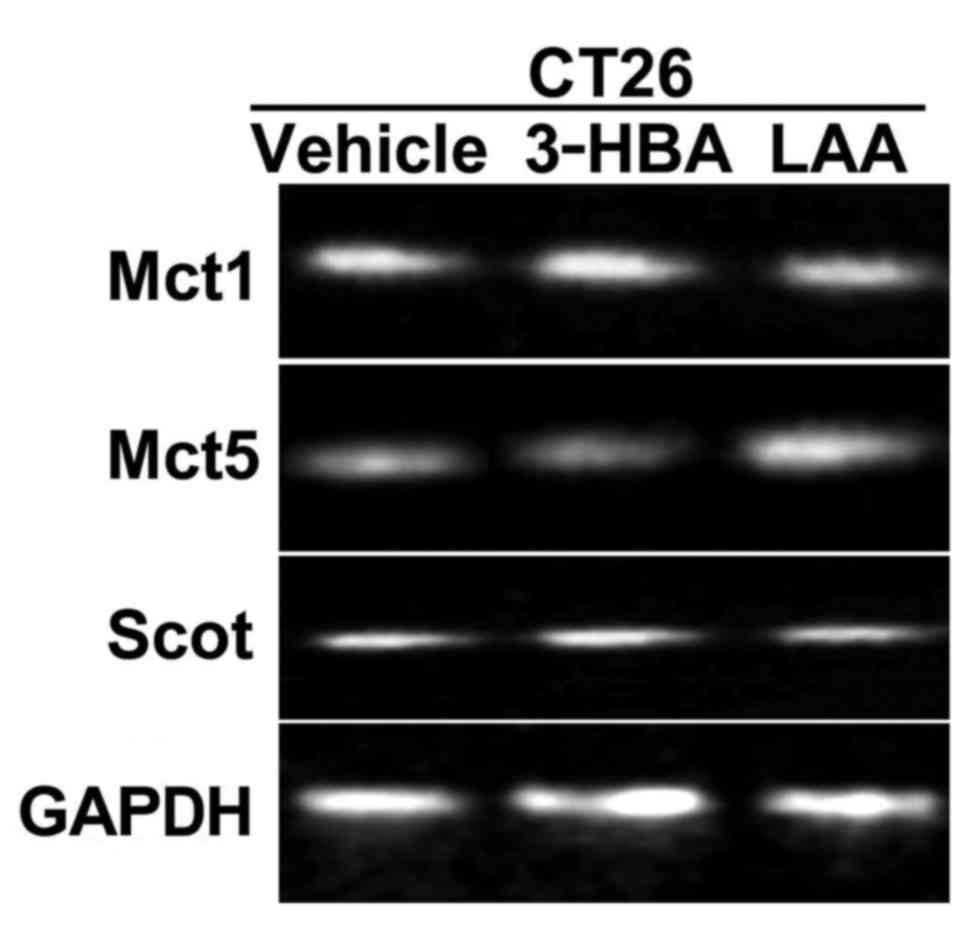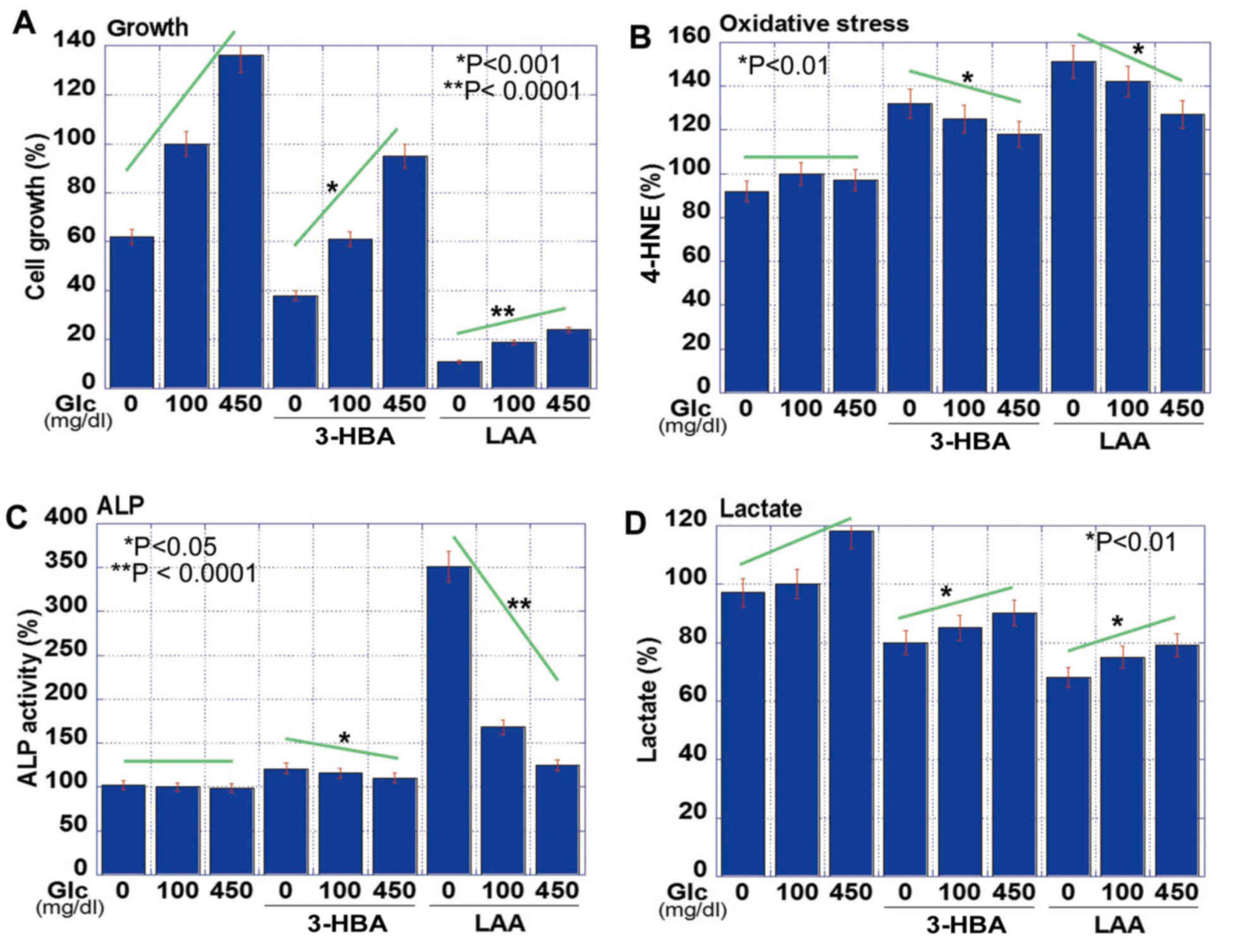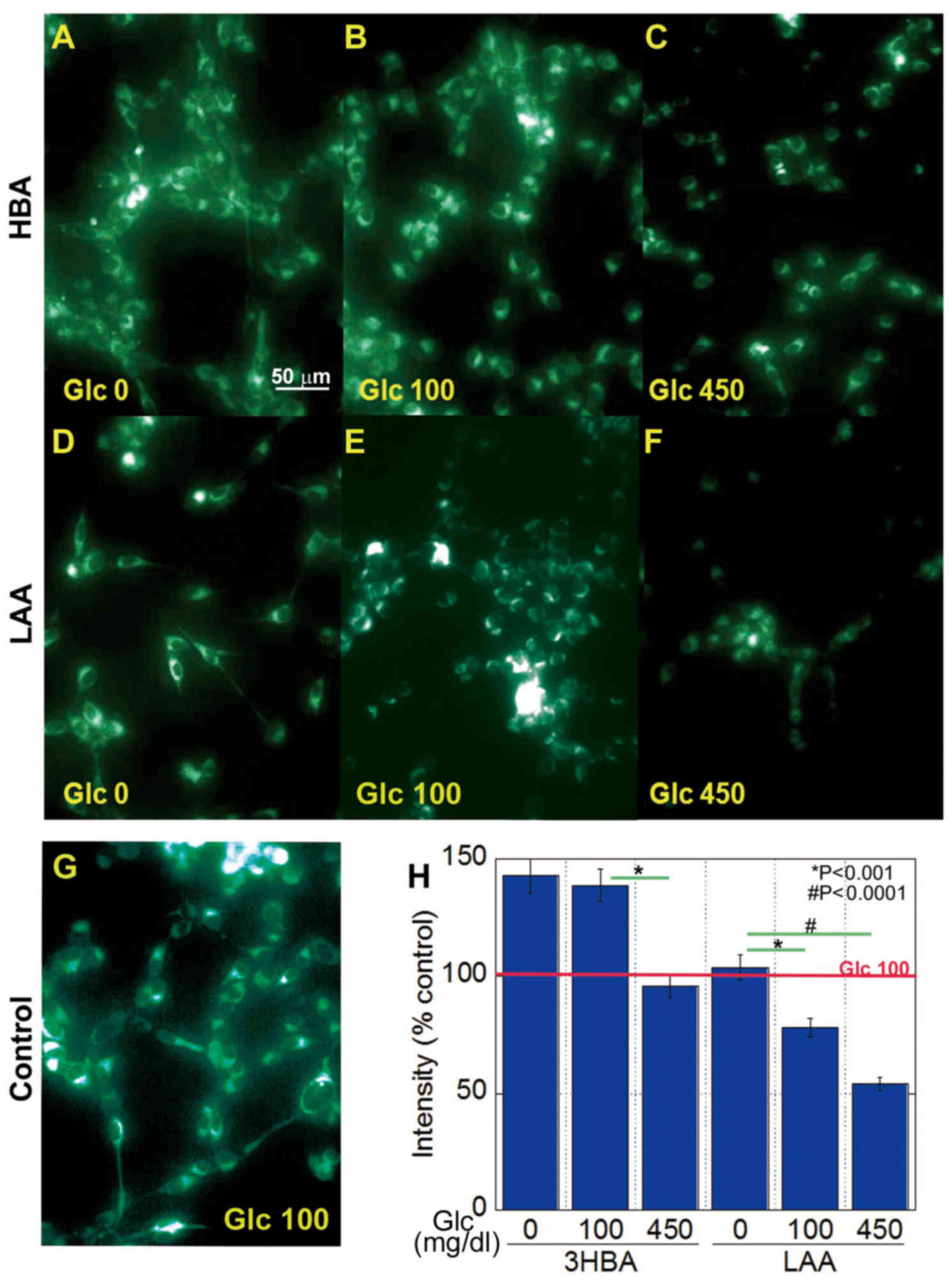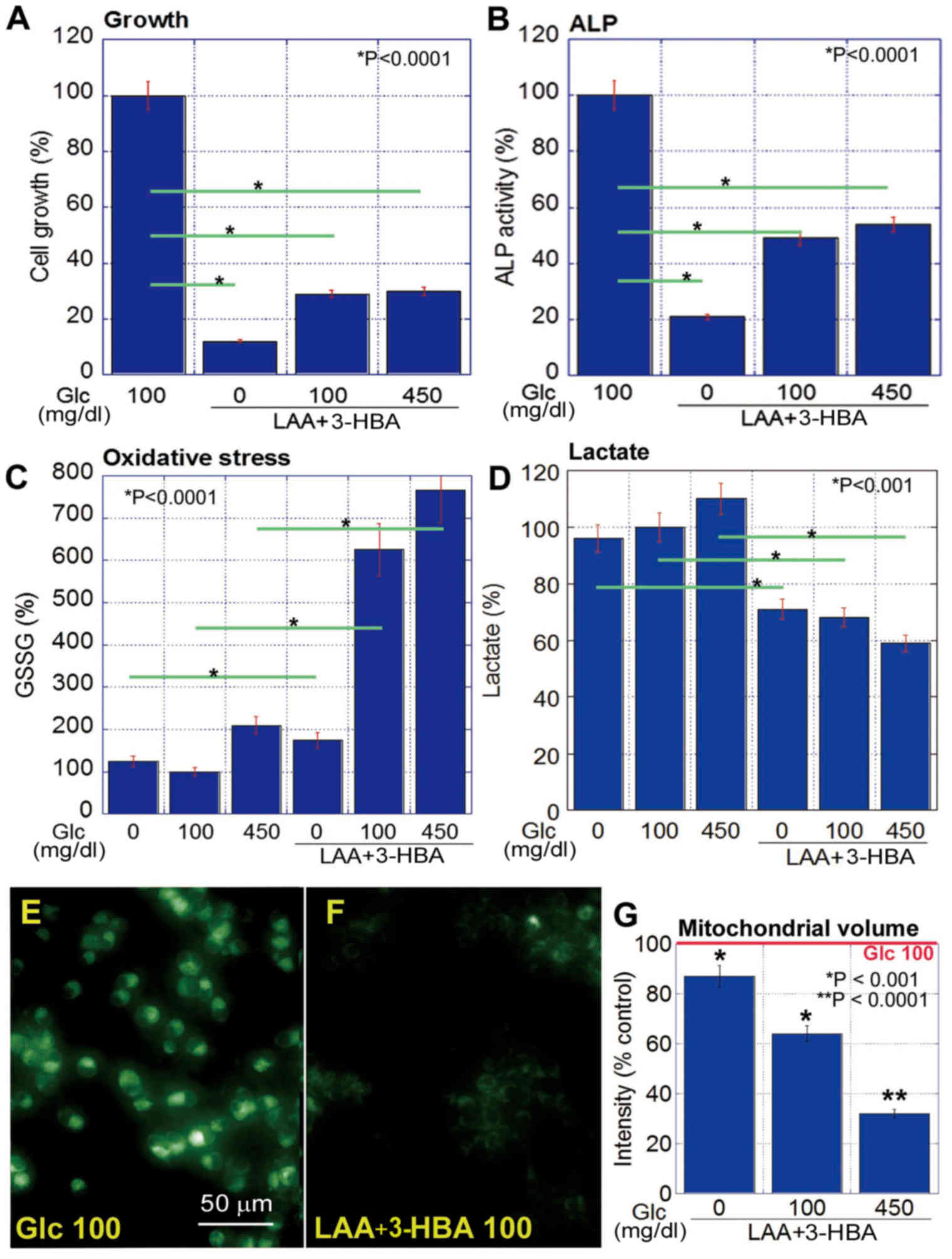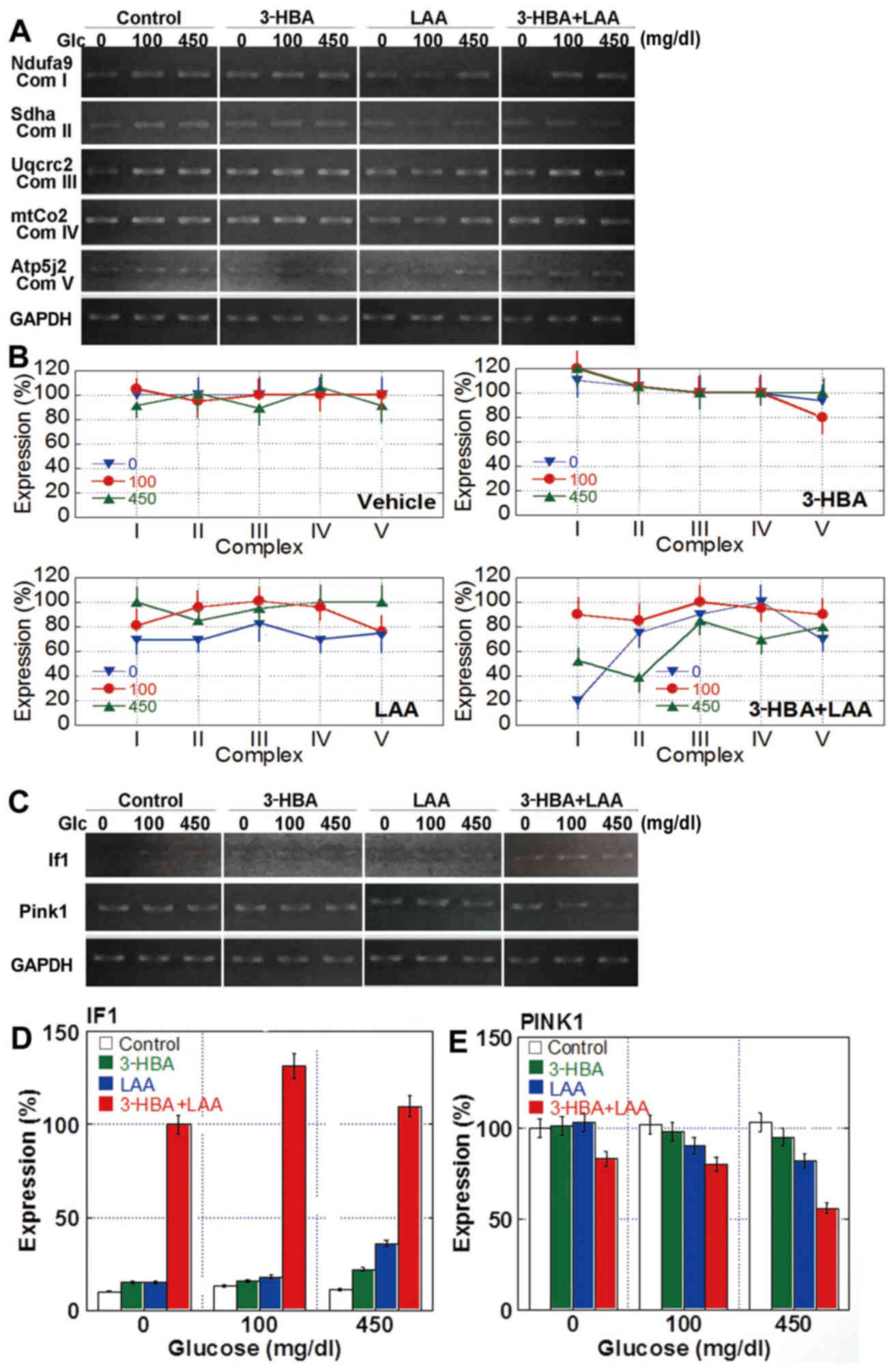|
1
|
Chen X, Qian Y and Wu S: The Warburg
effect: Evolving interpretations of an established concept. Free
Radic Biol Med. 79:253–263. 2015. View Article : Google Scholar : PubMed/NCBI
|
|
2
|
Warburg O: On respiratory impairment in
cancer cells. Science. 124:269–270. 1956.PubMed/NCBI
|
|
3
|
Hess JA and Khasawneh MK: Cancer
metabolism and oxidative stress: Insights into carcinogenesis and
chemotherapy via the non-dihydrofolate reductase effects of
methotrexate. BBA Clin. 3:152–161. 2015. View Article : Google Scholar : PubMed/NCBI
|
|
4
|
Boland ML, Chourasia AH and Macleod KF:
Mitochondrial dysfunction in cancer. Front Oncol. 3:2922013.
View Article : Google Scholar : PubMed/NCBI
|
|
5
|
Dueregger A, Schöpf B, Eder T, Höfer J,
Gnaiger E, Aufinger A, Kenner L, Perktold B, Ramoner R, Klocker H
and Eder IE: Differential utilization of dietary fatty acids in
benign and malignant cells of the prostate. PLoS One.
10:e01357042015. View Article : Google Scholar : PubMed/NCBI
|
|
6
|
Papamandjaris AA, MacDougall DE and Jones
PJ: Medium chain fatty acid metabolism and energy expenditure:
Obesity treatment implications. Life Sci. 62:1203–1215. 1998.
View Article : Google Scholar : PubMed/NCBI
|
|
7
|
Newman JC and Verdin E: β-hydroxybutyrate:
Much more than a metabolite. Diabetes Res Clin Pract. 106:173–181.
2014. View Article : Google Scholar : PubMed/NCBI
|
|
8
|
Fukao T, Mitchell G, Sass JO, Hori T, Orii
K and Aoyama Y: Ketone body metabolism and its defects. J Inherit
Metab Dis. 37:541–551. 2014. View Article : Google Scholar : PubMed/NCBI
|
|
9
|
McCarty MF and DiNicolantonio JJ: Lauric
acid-rich medium-chain triglycerides can substitute for other oils
in cooking applications and may have limited pathogenicity. Open
Heart. 3:e0004672016. View Article : Google Scholar : PubMed/NCBI
|
|
10
|
Fulgencio JP, Kohl C, Girard J and
Pégorier JP: Troglitazone inhibits fatty acid oxidation and
esterification, and gluconeogenesis in isolated hepatocytes from
starved rats. Diabetes. 45:1556–1562. 1996. View Article : Google Scholar : PubMed/NCBI
|
|
11
|
Kuniyasu H, Yano S, Sasaki T, Sasahira T,
Sone S and Ohmori H: Colon cancer cell-derived high mobility group
1/amphoterin induces growth inhibition and apoptosis in
macrophages. Am J Pathol. 166:751–760. 2005. View Article : Google Scholar : PubMed/NCBI
|
|
12
|
Kuniyasu H, Oue N, Wakikawa A, Shigeishi
H, Matsutani N, Kuraoka K, Ito R, Yokozaki H and Yasui W:
Expression of receptors for advanced glycation end-products (RAGE)
is closely associated with the invasive and metastatic activity of
gastric cancer. J Pathol. 196:163–170. 2002. View Article : Google Scholar : PubMed/NCBI
|
|
13
|
Schutkowski A, Wege N, Stangl GI and König
B: Tissue-specific expression of monocarboxylate transporters
during fasting in mice. PLoS One. 9:e1121182014. View Article : Google Scholar : PubMed/NCBI
|
|
14
|
Takimoto M and Hamada T: Acute exercise
increases brain region-specific expression of MCT1, MCT2, MCT4,
GLUT1, and COX IV proteins. J Appl Physiol (1985). 116:1238–1250.
2014. View Article : Google Scholar : PubMed/NCBI
|
|
15
|
Schönfeld P and Wojtczak L: Short- and
medium-chain fatty acids in energy metabolism: The cellular
perspective. J Lipid Res. 57:943–954. 2016. View Article : Google Scholar : PubMed/NCBI
|
|
16
|
Sawai M, Yashiro M, Nishiguchi Y, Ohira M
and Hirakawa K: Growth-inhibitory effects of the ketone body,
monoacetoacetin, on human gastric cancer cells with succinyl-CoA:
3-oxoacid CoA-transferase (SCOT) deficiency. Anticancer Res.
24:2213–2217. 2004.PubMed/NCBI
|
|
17
|
Ṧtefková K, Procházková J and Pacherník J:
Alkaline Phosphatase in Stem Cells. Stem Cell Int.
2015:6283682015.
|
|
18
|
Skinner R, Trujillo A, Ma X and Beierle
EA: Ketone bodies inhibit the viability of human neuroblastoma
cells. J Pediatr Surg. 44:212–216. 2009. View Article : Google Scholar : PubMed/NCBI
|
|
19
|
Chao C, Carmical JR, Ives KL, Wood TG,
Aronson JF, Gomez GA, Djukom CD and Hellmich MR: CD133+ colon
cancer cells are more interactive with the tumor microenvironment
than CD133- cells. Lab Invest. 92:420–436. 2012. View Article : Google Scholar : PubMed/NCBI
|
|
20
|
Park JH, Vithayathil S, Kumar S, Sung PL,
Dobrolecki LE, Putluri V, Bhat VB, Bhowmik SK, Gupta V, Arora K, et
al: Fatty acid oxidation-driven src links mitochondrial energy
reprogramming and oncogenic properties in triple-negative breast
cancer. Cell Rep. 14:2154–2165. 2016. View Article : Google Scholar : PubMed/NCBI
|
|
21
|
Carneiro L, Geller S, Fioramonti X, Hébert
A, Repond C, Leloup C and Pellerin L: Evidence for hypothalamic
ketone body sensing: Impact on food intake and peripheral metabolic
responses in mice. Am J Physiol Endocrinol Metab. 310:E103–E115.
2016.PubMed/NCBI
|
|
22
|
Allen BG, Bhatia SK, Anderson CM,
Eichenberger-Gilmore JM, Sibenaller ZA, Mapuskar KA, Schoenfeld JD,
Buatti JM, Spitz DR and Fath MA: Ketogenic diets as an adjuvant
cancer therapy: History and potential mechanism. Redox Biol.
2:963–970. 2014. View Article : Google Scholar : PubMed/NCBI
|
|
23
|
Hecker M, Sommer N, Voigtmann H, Pak O,
Mohr A, Wolf M, Vadász I, Herold S, Weissmann N, Morty RE, et al:
Impact of short- and medium-chain fatty acids on mitochondrial
function in severe inflammation. JPEN J Parenter Enteral Nutr.
38:587–594. 2014. View Article : Google Scholar : PubMed/NCBI
|
|
24
|
Ishizawa R, Masuda K, Sakata S and
Nakatani A: Effects of different fatty acid chain lengths on fatty
acid oxidation-related protein expression levels in rat skeletal
muscles. J Oleo Sci. 64:415–421. 2015. View Article : Google Scholar : PubMed/NCBI
|
|
25
|
Provenzani A, Fronza R, Loreni F, Pascale
A, Amadio M and Quattrone A: Global alterations in mRNA polysomal
recruitment in a cell model of colorectal cancer progression to
metastasis. Carcinogenesis. 27:1323–1333. 2006. View Article : Google Scholar : PubMed/NCBI
|
|
26
|
Chen Y, Zhang H, Zhou HJ, Ji W and Min W:
Mitochondrial redox signaling and tumor progression. Cancers
(Basel). 8:pii: E402016. View Article : Google Scholar
|
|
27
|
Schonfeld P and Wojtczak L: Brown adipose
tissue mitochondria oxidizing fatty acids generate high levels of
reactive oxygen species irrespective of the uncoupling protein-1
activity state. Biochim Biophys Acta. 1817:410–418. 2012.
View Article : Google Scholar : PubMed/NCBI
|
|
28
|
Lee YK, Jee BA, Kwon SM, Yoon YS, Xu WG,
Wang HJ, Wang XW, Thorgeirsson SS, Lee JS, Woo HG and Yoon G:
Identification of a mitochondrial defect gene signature reveals
NUPR1 as a key regulator of liver cancer progression. Hepatology.
62:1174–1189. 2015. View Article : Google Scholar : PubMed/NCBI
|
|
29
|
Ploumi C, Daskalaki I and Tavernarakis N:
Mitochondrial biogenesis and clearance: A balancing act. FEBS J.
284:183–195. 2017. View Article : Google Scholar : PubMed/NCBI
|
|
30
|
Ghanta S, Tsoyi K, Liu X, Nakahira K, Ith
B, Coronata AA, Fredenburgh LE, Englert JA, Piantadosi CA, Choi AM
and Perrella MA: Mesenchymal stromal cells deficient in autophagy
proteins are susceptible to oxidative injury and mitochondrial
dysfunction. Am J Respir Cell Mol Biol. 56:300–309. 2016.
View Article : Google Scholar
|















